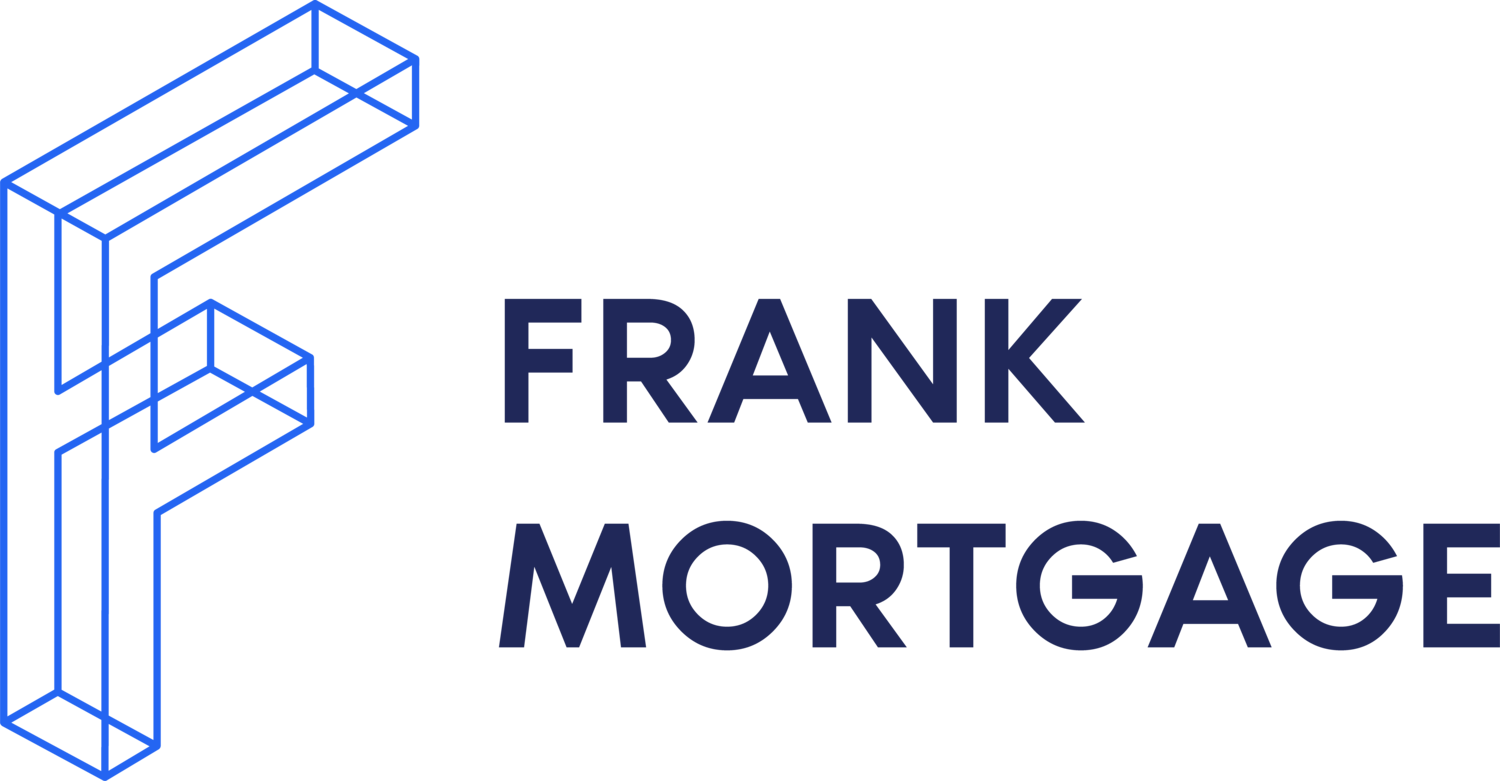First Time Home Buyer Incentives in Canada
An Introductory Guide
Canadian mortgage borrowers have experienced stress over the past year due to increasing interest rates. News headlines commonly refer to the prime rate, noting the frequent increases in the prime rate and the impact it has on variable-rate mortgage borrowers. As a mortgage borrower, do you understand how the prime rate affects you?

Homeownership is a goal for most Canadians. Most of us want to find a place to raise a family, provide shelter and to call your own. From the news headlines, one might think that homeownership is near impossible in some of our larger markets. There is some truth to this but if you are evaluating your homeownership prospects as a first-time buyer, there are many programs in place that can assist you. Your evaluation of your financial readiness for homeownership needs to take these programs into account.
Various government incentives such as the RRSP Home Buyers' Plan, tax rebates, and the First Home Savings Account (FHSA) offer financial assistance and are essential tools in making homeownership more attainable. Considering factors like steady income, job stability, and long-term plans will also guide you in determining if you're ready for this significant milestone. This guide aims to provide an overview of what is available to you to help you finance the purchase of your first home. There are many government programs and incentives available.
This guide aims to provide an overview of what is available to you to help you finance the purchase of your first home. There are many government programs and incentives available.
The First-Time Home Buyer Incentive (FTHBI) is No More
The government has canceled the First-Time Home Buyer Incentive (FTHBI). This program was a shared equity mortgage that received little interest in the market. It was widely criticized when launched, and it appears the critics were correct. Good riddance to a poorly conceived idea.
Given the recent demise of the FTHBI, now is a good time to evaluate what other government programs may be worthy of consideration by first-time home buyers.
RRSP Home Buyers' Plan (HBP)
The RRSP Home Buyers' Plan (HBP) offers a unique opportunity for first-time home buyers to use otherwise locked away savings to purchase a home. This plan allows individuals to withdraw up to $35,000 from their Registered Retirement Savings Plans (RRSPs) to finance a down payment on their first home, with the advantage that the withdrawal is tax-free.
Here's a breakdown of key points regarding the HBP:
- Withdrawal Limit: Up to $60,000 can be withdrawn tax-free from an individual's RRSPs. This amount must be repaid within a 15-year period to avoid it being taxed as income.
- Eligibility Criteria: To be eligible for the HBP, you must be a first-time home buyer, have a written agreement to buy or build a qualifying home, intend to occupy the home as your principal residence within one year after purchase or construction, and be a resident of Canada at the time of the withdrawal.
- Repayment Conditions: The repayment period starts the second year after the year in which the withdrawal was made. Each year, at least 1/15 of the total withdrawn amount must be repaid into the RRSP accounts. Failure to make a repayment results in that minimum repayment amount being counted as taxable income for that year.
First Home Savings Account (FHSA)
For first-time home buyers in Canada, one of the major challenges is saving for a down payment. The introduction of the First Home Savings Account (FHSA) in 2023 provides an unparalleled tool for saving towards this significant life milestone. Here's how the FHSA works:
- Eligibility and Contributions: To open an FHSA, you must be a Canadian resident, at least 18 years old, and a first-time home buyer, meaning you have not owned a home in the previous four years. You can contribute up to $8,000 annually, with a lifetime limit of $40,000.
These contributions are tax-deductible, reducing your taxable income for the year. - Tax Advantages: The FHSA stands out for its tax efficiency. Not only are your contributions deductible, but the income and gains generated within the account grow tax-free. When you are purchasing your first home, withdrawals can be made tax free, provided they are used for this purpose.
- Flexibility and Longevity: The account has a 15-year lifespan or until the end of the year you turn 71, offering flexibility in planning your home purchase. If you decide not to buy a home, the FHSA balance can be transferred to an RRSP or RRIF on a tax-deferred basis or withdrawn with taxes applied.
The FHSA is now widely available at most financial institutions. Check with your financial institution or financial advisor to find out if it is right for you and how to set one up.
The HBP, in conjunction with the FHSA, can offer significant advantages for prospective home buyers who are able to save. The HBP allows first-time home buyers to withdraw up to $35,000 from an RRSP to buy a home. Adding the maximum $40,000 saved in an FHSA, a homebuyer maximizing both programs will be able to access $75,000 in capital for a down payment, plus any growth in the value of the investments in the FHSA.
Provincial Incentives
In Canada, first-time home buyers have access to a variety of provincial and territorial incentives designed to make the path to homeownership more accessible and affordable. Here's a look at some of these programs:
- Saskatchewan's First Time Homebuyer’s Credit: Offers a non-refundable tax credit of up to $1,050 on qualified homes. You must be subject to Saskatchewan income tax to benefit from the tax credit.
- Québec's Tax Credit for First-Time Home Buyers: Provides up to $1,400 in tax relief for eligible purchasers of qualifying homes.
- Land Transfer Tax Rebates: Across various provinces and territories, first-time buyers can benefit from rebates on land transfer taxes, which can significantly reduce the upfront costs associated with purchasing a home. Land transfer tax is the largest closing costs associated with purchasing a home. Rebates are available if you live in Ontario, British Columbia, or Prince Edward Island. For instance:
- In Ontario, rebates of up to $4,000 are available.
- British Columbia offers a maximum rebate of $8,000.
- In PEI, rebates can amount to as much as $2,000.
- The City of Toronto also offers a rebate under the Toronto First-Time Home Buyer Incentive. Eligible first-time home buyers can receive a rebate of up to $4,475 on the municipal land transfertax.
These incentives are attractive for first-time home buyers but often come with restrictions, including only being eligible for homes under a certain value (for example, only existing properties under $500,000 are eligible for the full rebate in BC).
GST/HST New Housing Rebate
This rebate provides a tax refund if you purchase a newly built home or substantially rebuild/renovate an existing home. GST/HST is chargeable on new build homes and this program can rebate the GST portion to those first-time homebuyers that qualify.
In some Provinces it may also be possible to obtain a partial rebate for the HST component.
Private Market Products That Can Assist First-Time Homebuyers
- Rent-to-Own
For renters who are struggling to save the required down payment to purchase their first home, a rent-to-own program may be of benefit. These companies purchase the home for you and then rent it to you. A portion of the rental payment is set aside (i.e. saved) for you. These saved funds you can be used toward a down payment to purchase the home. Once you are ready to purchase the home, the rent-to-own company will sell the home to you.
- Shared Equity
There are companies that offer to provide some of your required down payment to assist you in qualifying for the mortgage you need to buy a home. This is not exclusive to first-time homebuyers, but it is a product that is expected to help them the most. These companies don’t lend you money, they co-invest in the property with you. When you decide to sell your home, the company earns a share of the gain on sale of the home.
Both products come with some complexity and cost, but they can help some first-time homebuyers get into the housing market earlier than they may have been able to do on their own.
Why Do These Programs Exist?
A pillar of our society and culture is household formation. Communities thrive as new families enter the housing market and contribute to the local community. Homeownership has also been proven to be a means to save and build wealth for Canadians over time. In fact, RBC economics recently estimated that half of all wealth generated in Canada in the last 3 decades has come from homeownership. Our government is well served by encouraging first-time homebuyers to enter the market.
While the government offers these incentives for good reasons, they inexplicably then create rules and conditions that make it harder for first-time homebuyers to enter the market. The mortgage stress test is a great example. OSFI (the banking regulator) has also recently announced that they will place limits on loan-to-income ratios as banks. So, while OSFI tightens rules to keep new buyers out of the market, the federal and provincial governments create tax and other incentives to bring them into the market. We wish it all made sense.
Conclusion
The incentives exist for first-time homebuyers, so take advantage of them. If you are just starting out and wondering how you will ever be able to afford a home, set up a first-home savings account. As you start to save money and reap the tax benefits, you will see that before long, your financial ability to own a home is not so far away after all. These incentives not only illuminate the pathways to homeownership but also enhance financial readiness and planning, ensuring a more accessible and sustainable entry into the real estate market.
For tailored guidance and additional assistance in navigating these waters, consider reaching out to our team at Frank Mortgage. Call us at 1-888-850-1337 or find us at www.frankmortgage.com to discover further resources for first-time home buyers. We can help prospective homeowners equip themselves with the knowledge and tools necessary for informed decision-making, setting the stage for success in one of life's most significant investments.
FAQs
Q: Where can I get an FHSA?
A: The FHSA is a relatively new product, launched in 2023. After some time to get set up. Most financial institutions now have FHSA products they can offer. Most banks, credit unions, insurance companies and wealth management companies offer an FHSA.
Q: How do I qualify as a first-time homebuyer?
A: There are several criteria that are fairly consistent across all FTHB programs:
- You are a Canadian resident.
- You and/or your spouse or co-owner have not owned a home, either jointly or outright, in the prior four years
There are exceptions if you have recently separated from and no longer live with a spouse or partner.
Q: What is the minimum down payment required for a first-time home buyer in Canada?
A: The minimum down payment for a first-time home buyer in Canada is 5% of the home's purchase price below $500,000, plus 10% of the value between $500,000 and $1 million. For properties valued more than $1 million, the minimum down payment is 20%.
Q: Why was the First Time Home Buyer Incentive cancelled?
A: The program was underutilized and not considered helpful for most first-time homebuyers. The eligibility criteria seriously restricted most buyers from qualifying.
Related Pages
- https://www.frankmortgage.com/blog/first-home-savings-account
- https://www.frankmortgage.com/blog/down-payment-requirements-for-mortgages-in-canada
- https://www.frankmortgage.com/blog/tips-for-new-homebuyers-in-canada
- https://www.frankmortgage.com/blog/a-beginners-guide-to-the-mortgage-process
- https://www.frankmortgage.com/blog/mortgage-documents-requirements-in-canada
- https://www.frankmortgage.com/blog/gifted-down-payment
About The Author

Don Scott
Don Scott is the founder of a challenger mortgage brokerage that is focused on improving access to mortgages. We can eliminate traditional biases and market restrictions through the use of technology to deliver a mortgage experience focused on the customer. Frankly, getting a mortgage doesn't have to be stressful.
Related Posts




Mortgage Brokerage Licensed in Ontario (#13204), British Columbia, Alberta, Saskatchewan (#514115), Manitoba, Nova Scotia, Newfoundland & Labrador, and New Brunswick (#230015752).
© Frank Mortgage 2025 | All Rights Reserved


